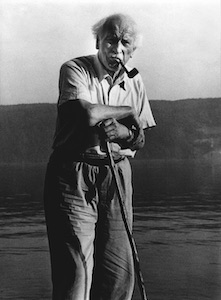Basic Jung renamed Jungian Keynotes
Basic Jung is now Jungian Keynotes, starting this semester; the format and content will remain unchanged. Basic Jung was introduced in Spring Semester 2017 as a series of eight lectures at the start of each new semester for both ISAP students and the public. Whatever the original intention, this series is not an introduction to Analytical Psychology per se. To emphasise this, its scope has been clarified as “In-depth explorations of key aspects of Analytical Psychology”. As before, the lectures will explore a different aspect each semester. ISAP’s teaching program is not, and cannot be, structured as a linear progression of levels or a tidy division into topics. Analytical Psychology is intrinsically holistic, so learning is by a process akin to osmosis.
Jungian Keynotes – March 2023
The Unconscious
Jungian Keynotes – March 2023

The first lecture of this series provides a general introduction to major themes of analytical psychology. The seven following lectures highlight various aspects of the Jungian concept of the unconscious. What is the unconscious? How do Jung’s and Freud’s concepts of the unconscious and neurosis differ? What is the personal and the collective unconscious, and how are they linked? What role does the unconscious play in our psyche and in the relationship between psyche and matter? And what are the indigenous, African roots of some of Jung’s concepts like the unconscious? Our dreams evidence how the unconscious functions, and they help us to cooperate with it. Pictures, too, reveal unconscious contents, inviting us to enter into dialogue. Active imagination, used by Jung himself, is the basis of some modern Jungian approaches to engage with the unconscious.
All Jungian Keynotes lectures will be broadcast live on Zoom. You can purchase Zoom attendance below on this page. See our Zoom Lectures page for more details.
Date & Venue
7–10 March 2023

Stampfenbachstr. 115, 8006 Zürich
Tram 11 or 14 to Beckenhof
Event Schedule
Tuesday, 7 March
13:00–14:45
Dariane Pictet, Ad. Dip. Ex. Psych
01 02 Lecture | Major Themes and Concepts in Analytical Psychology
This is an introduction to Jung’s structure of the psyche. We will go over the major concepts of analytical psychology such as ego and shadow, persona, archetypes, the Self and individuation.
15:00–16:45
Andrew Fellows, PhD
01 03 Lecture | The Nature of Psyche
What, where and when is psyche, and what is its relationship with matter and time? I will focus on Jung’s most recent thinking, especially his collaboration with Wolfgang Pauli. Consciousness per se is a relatively small, but important, aspect of Jung’s model, through which we experience not just perceptions, but phenomena such as dreams and complexes that have deeper origins. These lead us to the personal and collective unconscious, and fundamental concepts including the archetypes and their manifestations, the psychoid, the Self and the timeless unity of all that is, the unus mundus.
Wednesday, 8 March
13:00–14:45
Nancy Krieger, PhD
07 04 Lecture | The Personal and the Collective Unconscious: A Complex Relationship
We will be investigating the relationship between the personal and the collective unconscious, the archetype and the complex. It is not always as simple as it seems.
15:00–16:45
Douglas Whitcher, PhD
01 05 Lecture | Dreaming and the Work of the Unconscious
Dreams give us insight into how the unconscious operates. Considering the fact that the unconscious is by definition at odds with the conscious mind, any method that aims to cooperate with the unconscious will require a high degree of diplomatic skill. By steering a course between the Scylla of science and the Charybdis of literature, Jung left us with an approach to the unconscious that is constantly updated by means of the fresh data that comes to us in the form of dreams.
Thursday, 9 March
13:00–14:45
Lucienne Marguerat, lic. phil.
04 07 Lecture | Dialogue with Pictures
Pictures speak! They can speak to feelings, mind, body and soul. How they speak depends on our values, culture and state of mind. Some hit hard, some we hardly see. If we let them, pictures convey immediately an atmosphere. The first emotional response can be deepened by examining different aspects of pictures. The closer we look, the deeper we can be touched and surprised. Pictures brought in therapy are additional, helpful voices.
15:00–16:45
Ilsabe von Uslar Ryffel, lic. phil.
09 08 Lecture | Some Aspects of Neurosis in Sigmund Freud's and C.G. Jung's Views of the Unconscious
We will look at some similarities and differences in their understanding of the unconscious and the mechanics of neurotic development.
Friday, 10 March
13:00–14:45
Peter Ammann, Dr. phil.
05 10 Lecture | Listening to the Unconscious – Listening to the Ancestors: About the Archetypal Roots of Jungian Psychology
The aim of this lecture is to track back some of Jung’s major concepts to their primordial indigenous roots, in particular those from Africa.
15:00–16:45
** This course replaces the original course offered by Wieland-Burston, who cannot be present due to illness. **
Scott William Hyder, lic. phil.
01 11 Lecture | Beginnings, Endings & Filling in the Gaps: The Unconscious in Active Imagination, Dream, Fantasy, Projection, Image, Inferior Function & Synchronicity
Jung's creative approach to relationship with the unconscious found expression in many methods and techniques. Within the symbolic life, it comprises the dance of individuation with respect to/for both depths and surface, ego and self/Self. This lecture will use examples from casework to illustrate dialogue, drama and dynamisms that emerge, converge and engage within and through the psychological process of becoming more whole by embracing parts which help to heal.
Cost & Registration
Payment in cash at the door
The Complete Lecture Series
General Entry: CHF 180
Students, Seniors, Disabled: CHF 120
Per Lecture
General Entry: CHF 30
Students, Seniors, Disabled: CHF 20
Gratis for ISAP Students and Analysts
For questions please contact [email protected]
Speakers
Downloads
| File Name | Type | Permissions | Changed Date | Date | Size |
|---|
Combined size: 0 B

